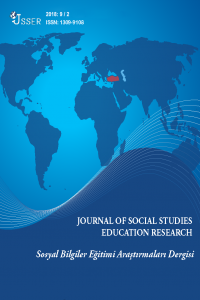The Role of Local History Texts in Implementing the Culturological Approach to Teaching the Russian Language: the Basic General Education Level
Abstract
The prevailing view in the scientific and methodological community has long been that the culturological approach to language studies (called the "leading" approach in linguodidactics at the turn of the 21st century at the IX International Congress of the International Association of Teachers of Russian Language and Literature (MAPRYAL) held in Bratislava in 1999) is necessary. The issue of means, ways and possibilities for students to master the values of spiritual and material culture through a language can be solved in various ways, but, in our opinion, one of the most effective ways is to include materials on local history and studies into the school curriculum for the Russian language course. Such materials are intended, first, for expanding both the students’ universal background knowledge and the knowledge of their country. In this context, one of the most important components aimed at implementing the culturological approach in Russian language lessons is a culturological text on local history and studies. Acquainting students with texts on local history and studies is aimed at "ensuring the historical continuity of generations, preserving, distributing, and developing national culture, and fostering an attitude of care towards the historic and cultural heritage of the peoples of Russia" (Makeev, 1995). All of the above has prompted the authors of this article to attempt presenting their view both on the significance of studying a text on local history and studies within the implementation of the culturological competence and including such texts in the system of educating and training students using the means of the Russian language course.
Details
| Journal Section | History Education |
|---|---|
| Authors | |
| Publication Date | May 11, 2018 |
| Published in Issue | Year 2018 Volume: 9 Issue: 2 |


